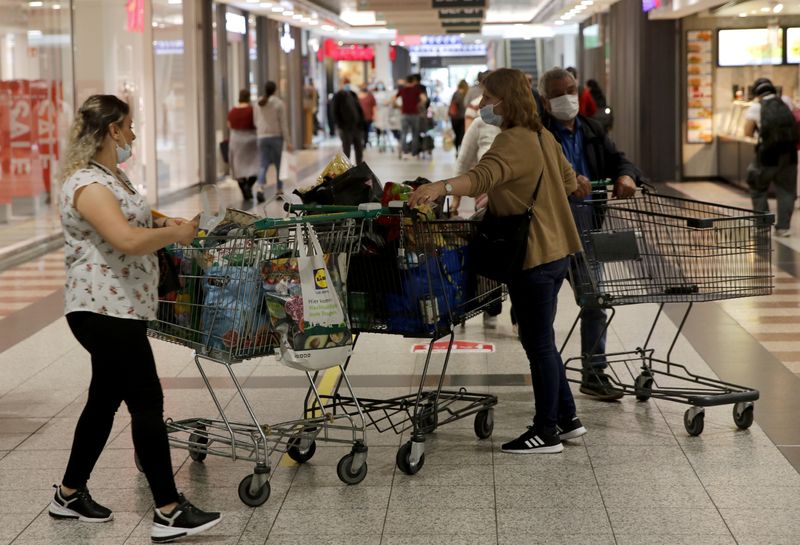By Michael Nienaber
BERLIN (Reuters) - German retail sales rose much more than expected in August, data showed on Wednesday, raising hopes that household spending in Europe's largest economy will power a strong recovery in the third quarter from the coronavirus shock.
Chancellor Angela Merkel and Finance Minister Olaf Scholz have since March unleashed an unprecedented array of rescue and stimulus measures to help companies and consumers recover as quickly as possible from Germany's deepest recession on record.
The measures include unlimited liquidity aid for struggling companies, a massive job protection scheme to shield workers from sudden unemployment as well as cash handouts for parents and a temporary VAT cut to boost domestic demand.
There had been some doubt whether the VAT cut, valid from July 1 to Dec. 31, was actually working, as some companies seemed not to be passing the reduction on to consumers.
But figures released by the Federal Statistics Office showed that retail sales jumped by 3.1% on the month in real terms in August after an upwardly revised drop of 0.2% in July.
A Reuters forecast had predicted a smaller increase of only 0.5%.
Demand was particularly strong for furnishings and household appliances with a 8% increase. Online retailers continued to benefit from shifting consumer habits with a 23% jump in sales.
This came at the expense of shops for clothes and shoes which suffered a 10% drop in sales.
Business associations have warned that the coronavirus crisis is accelerating a structural transformation in German retailing as consumers move online and away from small stores in cities.
On the year, retail sales rose by 3.7% in real terms after an upwardly revised increase of 5.0% the previous month.
Compared with February, the month before the outbreak of COVID-19 in Germany, retail sales in August were 5.8% higher, suggesting the sector has already put the crisis behind it.
The HDE retail association said last week it expected nominal sales to grow by 1.5% this year despite the pandemic, a sharp upward revision from its previous estimate of a 4% drop.

The HDE association had pointed to booming online sales and the government's stimulus measures, which it said were boosting private consumption and supporting the retail sector as a whole.